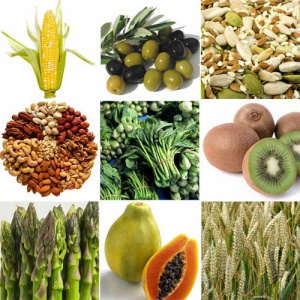Vitamin E
Contents
Description
Vitamin E is a general name for tocopherols and tocotrienols. Vitamin E is a group of alpha, beta, gamma and delta tocopherols that correspond to four tocotrienols. Vitamin E helps the body in the formation of red blood cells and assists it in the use of vitamin K. A fat-soluble antioxidant that helps protect body tissue, vitamin E is found in many foods, fats and oils and offers many health and beauty benefits.
Health Benefits
As well as being an antioxidant that helps fight off and defend against harmful free radicals, vitamin E poses many health benefits. Vitamin E has been shown to reduce the risk and in some cases prevent heart disease, reduce the risk of certain cancers ( only from food sources not supplements), prevent and treat photodermatitis, prevent and treat Alzheimer's Disease, promotes optimum eye health, relieves menstrual pain, helps reduce risk of illnesses and complications in those with Diabetes, pre-eclampsia, tardive dyskinesia, and reduce the pain inflicted by rheumatoid arthritis.
Beauty Benefits
A potent antioxidant, vitamin E protects the skin against free radicals, UV light ray damage, and helps to treat acne. It can soften your nail cuticles and smooth out any roughness in the skin, can act as a natural preservative, slow the signs of aging and deterioration of skin cells, prevents premature aging, moisturizes and softens dry or rough skin, diminishes stretch marks and scar tissue, reduce skin discolorations, reduces fine lines and wrinkles, maintains skin’s elasticity, acts as a beneficial emollient to the skin, maintains healthy skin and hair, moisturizes and protects the skin, and balances the pH level of the skin.
Food Sources
Vitamin E is found in a variety of foods, fats and oils including but not limited to:
- Corn
- Olives
- Wheat Germ
- Vegetable Oils
- Nuts
- Seeds
- Leafy Green Vegetables
- Asparagus
- Papaya
- Blueberries
- Peanut Butter
- Kiwi
- Mango
- Tomatoes
Vitamin E is not manufactured by our bodies, but claimed from the foods we consume and then utilized in our bodies. Although taking vitamin E supplements is an option, it is often a better option to get vitamin E from the foods you consume rather than supplementation as complications may be caused by using supplements.
Dose Recommendations
- Infants: 0-6 Months 4 Mg/Day, 7-12 Months 5 Mg/Day
- Children: 1-3 Years 6 Mg/Day, 4-8 Years 7 Mg/Day, 9-13 Years 11 Mg/Day
- Adolescents & Adults: 14+ years 15 Mg/Day
Side Effects
Studies show that high amounts of vitamin E can be harmful and may increase the risk of death. In low doses, vitamin E can be very beneficial, but it is important to consult a physician if you are taking other medications or are unsure whether vitamin E will benefit you as it can interact negatively with certain conditions and medications associated with them.
